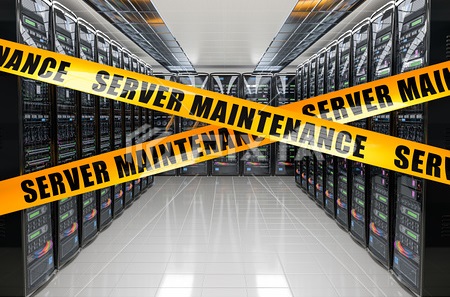Infinian Technology offers HPE Blade Server Maintenance Service (AMC) is designed to keep enterprise blade servers running at peak efficiency with proactive monitoring, preventive care, and expert support. By ensuring regular maintenance, organizations can reduce downtime, extend hardware lifecycle, and maintain secure, high‑performance IT infrastructure. With structured service levels and skilled technicians, the AMC provides peace of mind for businesses relying on HPE Blade Servers to power mission‑critical operations.For Quote Price/Cost Call: 9739091119

HPE Blade Server Maintenance Service (AMC)
1. Introduction to HPE Blade Server Maintenance Service (AMC)
- Importance of AMC for enterprise blade servers
- Role of proactive maintenance in IT reliability
2. Scope of HPE Blade Server Maintenance Service (AMC)
- Preventive and corrective maintenance coverage
- Remote and onsite support options
3. Key Inclusions in HPE Blade Server Maintenance Service (AMC)
- Hardware diagnostics and replacement
- Firmware and BIOS updates
- Patch management and security monitoring
- Backup and disaster recovery support
4. Performance Optimization through HPE Blade Server Maintenance Service (AMC)
- Server health monitoring
- Resource utilization tuning
- Storage and network performance checks
5. Service Levels in HPE Blade Server Maintenance Service (AMC)
- SLA commitments for quick resolution
- 24/7 emergency support availability
- Escalation procedures
6. Benefits of HPE Blade Server Maintenance Service (AMC)
- Reduced downtime and improved reliability
- Cost-effective maintenance solution
- Enhanced performance and longevity
7. Customization Options in HPE Blade Server Maintenance Service (AMC)
- Tailored AMC packages for different blade server models
- Flexible contract durations
- Add-on services such as virtualization and cloud integration
8. Pricing & Packages for HPE Blade Server Maintenance Service (AMC)
- Standard AMC package
- Premium AMC package
- Enterprise AMC package
9. Terms & Conditions of HPE Blade Server Maintenance Service (AMC)
- Contract validity and renewal policies
- Exclusions and limitations
- Warranty and liability clauses
- Moreover, it provides preventive and corrective support to minimize downtime and extend server lifespan.
- In addition, firmware updates, patch management, and performance tuning keep systems optimized for business‑critical workloads.
- However, unlike ad‑hoc support, AMC offers structured service levels with guaranteed response times.
- Consequently, organizations benefit from improved efficiency, reduced operational costs, and enhanced resilience.
- Ultimately, HPE Blade Server Maintenance Service (AMC) delivers peace of mind by safeguarding mission‑critical IT infrastructure.
What does HPE Blade Server AMC typically include?
Infinian Technology Pvt Ltd AMC plans offer:
- Preventive maintenance: Firmware updates, health checks, cooling system inspections
- Breakdown support: Onsite or remote troubleshooting and repair
- Hardware replacement: Coverage for blades, chassis, fans, power supplies, and interconnect modules
- Performance tuning: Optimization of compute, storage, and network modules
What’s the cost of AMC for HPE Blade Servers?
Pricing depends on model, location, and coverage. In India, basic AMC for a C7000 enclosure with multiple blades may start around ₹40,000–₹75,000/year.
What if my enclosure or blade is end-of-life?
HPE offers extended support for legacy systems like C7000, or you can upgrade to Synergy with AMC bundled into the purchase.
Why should businesses procure an AMC for HPE blade servers?
Blade-server systems (such as HPE’s) are mission-critical infrastructure: high density, complex architecture, shared power/cooling backplane.
Downtime or component failure can cause significant disruption (many blades in one chassis down)
AMC gives predictable cost (maintenance fee) vs adhoc repair costs
They help with preventive maintenance, regular health checks, firmware updates, and hardware replacement — extending the lifespan of the server infrastructure.
For you (as a consulting firm, e.g., Infinian Technology Pvt Ltd), offering AMC review and management is a value-add to clients.
What does a typical AMC for HPE blade servers include?
Here’s what Infinian Technology Pvt Ltd list for blade server AMCs:
Preventive Maintenance: Scheduled visits/inspections, cleaning chassis/blades, checking fans/power, firmware & BIOS upgrades.
Corrective Maintenance / Break-Fix: On-site engineer visits, diagnostics, replacement of failed components (CPU, RAM, storage, blade modules, chassis components) depending on contract.
Remote Support: Phone/email/chat support, remote health monitoring tools, alerts.
Spare Parts Coverage: Genuine or certified spares may be included (depending on comprehensive vs non-comprehensive). For example, one provider states: “OEM or compatible spare parts supply including blade motherboards, RAM, SSD/HDD, IO modules, fans, power components.”
SLA Terms: Response times (e.g., 4-6 hours, next business day), support hours (9×5 or 24×7) depending on tier.
Reporting & Documentation: Maintenance reports, incident logs, asset inventory, SLA compliance.
What factors influence the cost of an HPE blade-server AMC?
Cost depends on:
The blade server model/generation (e.g., BL460c Gen7 vs Gen9 vs Gen10) and its hardware specs. Older or more complex blades may cost more.
The scope of coverage (labour only vs spares included; remote only vs full on-site).
SLA level (response time, resolution target, 24×7 vs business hours).
Location & number of sites (metro vs remote, multiple sites).
Age of equipment (out of warranty, legacy hardware) — often higher maintenance cost.
Whether monitoring tools and preventive maintenance visits are included.
For example: one estimate listed for blade servers: “HPE ProLiant BL460c Gen6: ~₹10,000-13,000/year” and for Gen7: ~₹20,000-24,000/year in India.






Leave a Reply